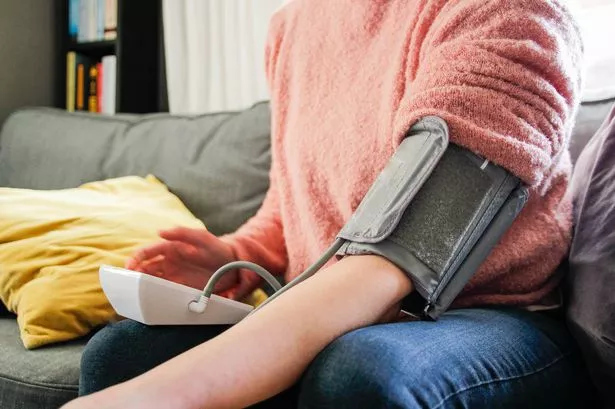
Scotland is bracing for its sunniest weekend of the year, with Glasgow expected to experience a heatwave and temperatures soaring to 30C. While many will take advantage of the warm weather with barbecues and beach outings, those with high blood pressure need to take precautions to safeguard their health.
High blood pressure, often referred to as a “silent killer,” affects over 14 million adults in the UK, many of whom are unaware of their condition. This health issue can lead to severe complications, including heart attacks and strokes. With the heatwave forecasted, managing blood pressure becomes even more critical due to the risks posed by higher temperatures.
Hot weather increases sweating, which can lead to fluid loss and dehydration. This, in turn, can cause a drop in blood volume and lower blood pressure, potentially resulting in symptoms like dizziness and fainting. The British Heart Foundation warns that individuals with heart and circulatory diseases face greater risks during such extreme weather.
To help those at risk navigate the heat, health organizations have shared essential tips for managing blood pressure effectively.
Stay Hydrated
Ruth Goss, Senior Cardiac Nurse at the British Heart Foundation, emphasizes the importance of hydration. “Water is best, but milk, sports drinks, diluted squash, fruit juice, tea, and coffee all count,” she stated. For those advised to limit fluid intake, such as patients with heart failure, consulting a healthcare professional for alternative cooling methods is crucial.
Individuals over 50, those who are overweight, and those with existing heart, lung, or kidney conditions are particularly vulnerable during heatwaves, according to the Mayo Clinic. Certain medications for blood pressure, including ACE inhibitors and beta-blockers, can impair the body’s ability to regulate temperature, increasing dehydration risk.
Recognize Symptoms of Heat Stress
It is essential to be aware of the signs indicating that the body is struggling with the heat. Symptoms such as cold, clammy skin, confusion, dizziness, rapid pulse, and fatigue should not be ignored. If these occur, it is crucial to seek immediate relief from the heat.
The Medicines and Healthcare products Regulatory Agency (MHRA) has offered guidance for patients on managing their medications during high temperatures, stressing the need for awareness about how these drugs can affect hydration and temperature regulation.
Practical Tips for Staying Cool
Alzheimer’s Society has provided recommendations that are beneficial for everyone, but especially for those with dementia during the heatwave. Wearing light-coloured, loose-fitting clothing made from natural fibres can help regulate body temperature. A hat or cap is advisable for anyone spending extended periods outdoors.
During the hottest part of the day, typically between 11:00 and 15:00, it is wise to keep curtains and blinds closed to block out sunlight. Opening windows in the evening can allow cooler air to circulate, further aiding in temperature control.
For those needing extra cooling, simple DIY methods can help. Placing a frozen water bottle next to a fan or using a washcloth soaked in iced water can create a refreshing breeze. Staying hydrated is essential, so having water readily available and encouraging individuals to consume high-water-content foods, such as melons and yogurt, can significantly help.
In caring for individuals with dementia, family members and caregivers should check in frequently, remind them to drink, and consider providing hydrating snacks. “Popping round to check on a neighbour, friend, or family member with dementia can help keep them safe during the hot weather,” said Angelo Makri, Senior Knowledge Officer for Wellbeing at Alzheimer’s Society.
As Scotland prepares for a record-breaking heatwave, remaining vigilant about health and hydration is essential, particularly for those with high blood pressure. By following these guidelines, individuals can enjoy the sunny weather while prioritizing their well-being.






